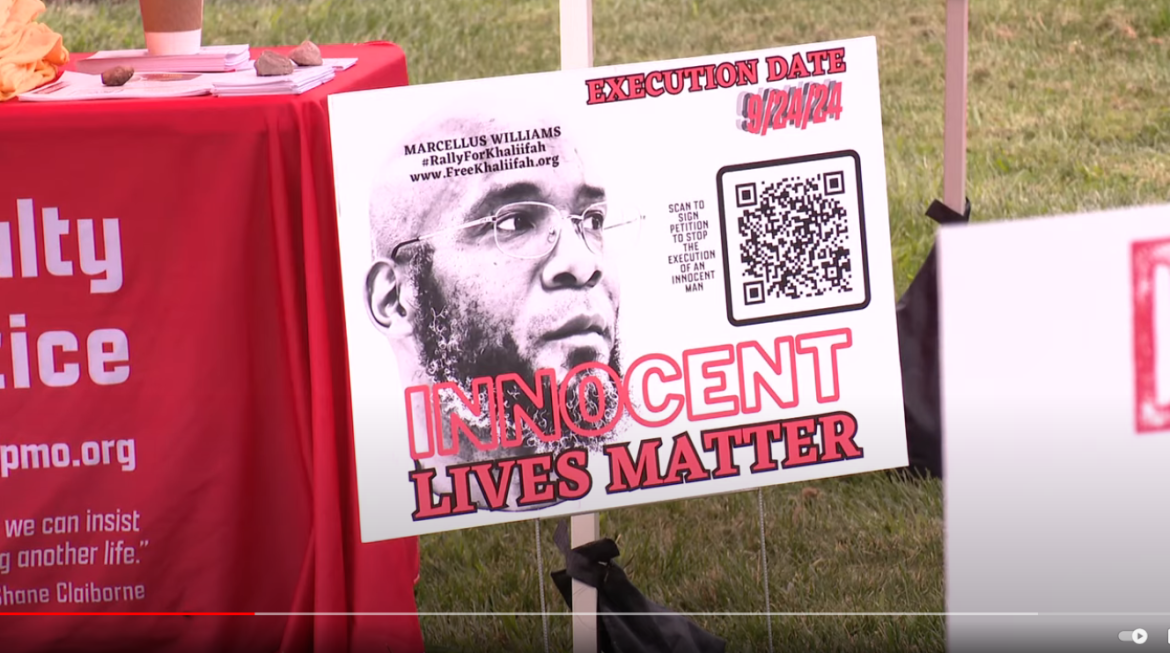The Missouri Supreme Court has blocked a proposed agreement that would have spared the life of death row inmate Marcellus Williams, ordering instead a new hearing to examine his claim of innocence. Williams, who has consistently maintained that he did not murder St. Louis Post-Dispatch reporter Felicia Gayle in 1998, was on the verge of securing a deal that would have commuted his death sentence to life imprisonment without the possibility of parole. As part of the agreement, Williams would have dropped his long-standing claim of innocence.
However, the state’s highest court intervened, halting the deal and mandating a hearing to assess new DNA evidence that Williams’ defense team argues could exonerate him. The decision by the Missouri Supreme Court to block the agreement and proceed with further examination of the case underscores the ongoing controversy and legal battles surrounding Williams’ conviction.
Williams was convicted of the brutal stabbing of Felicia Gayle, who was found dead in her University City home in August 1998. The case has been mired in controversy for years, with Williams’ defense attorneys arguing that new DNA evidence found on the murder weapon does not match Williams, raising serious doubts about his guilt. The defense has pointed to this evidence as a critical factor that warrants a re-examination of the case.
The agreement, which would have allowed Williams to avoid execution in exchange for accepting a life sentence, was seen by some as a pragmatic resolution to a case fraught with legal uncertainties. However, the Missouri Supreme Court’s intervention indicates a preference for a thorough judicial review of the new evidence rather than a negotiated settlement.
In its ruling, the court ordered a hearing specifically to review the DNA evidence that has recently come to light. This hearing will focus on whether the DNA found on the knife used in the murder belongs to someone other than Williams, and if so, whether this new information could lead to a reversal of his conviction. The court’s decision to explore this evidence more deeply reflects the broader concerns about the integrity of Williams’ conviction and the potential for a wrongful execution.
Williams’ legal team welcomed the court’s decision, expressing hope that the new hearing will finally clear his name. “We have always believed in Marcellus’ innocence, and this new evidence could be the key to proving it,” said one of Williams’ attorneys. “The court’s decision to take a closer look at the DNA evidence is a step in the right direction.”
However, the state prosecutors remain steadfast in their position, arguing that Williams’ conviction is sound and that the existing evidence against him is overwhelming. They have urged the court to proceed with caution, emphasizing the gravity of overturning a conviction in such a high-profile case.
The case of Marcellus Williams has attracted significant attention, both within Missouri and nationally, as debates over the death penalty and wrongful convictions continue to stir public and legal discourse. The upcoming hearing is expected to be a pivotal moment in the case, with potential implications for Williams’ future and for the broader justice system.
As the new court date approaches, advocates for Williams are mobilizing support, arguing that his case highlights the risks of capital punishment, particularly in cases where new evidence may cast doubt on a conviction. Meanwhile, those in favor of upholding the original sentence emphasize the importance of justice for the victim, Felicia Gayle, and her family.
The Missouri Supreme Court’s ruling ensures that the case will remain in the spotlight, with the hearing set to play a critical role in determining whether Williams will face execution or if his conviction will be overturned based on the newly presented evidence.



